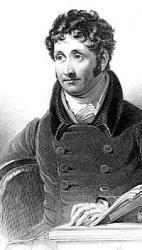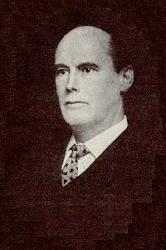Planning worship?
Check out our sister site, ZeteoSearch.org,
for 20+ additional resources related to your search.
- |
User Links
Search Results
A Last Prayer
Author: Helen Hunt Jackson Appears in 6 hymnals First Line: Father, I scarcely dare to pray
A Last Prayer
[Father, I scarcely dare to pray]
Appears in 2 hymnals Composer and/or Arranger: W. T. Giffe Incipit: 34555 65433 45555 Used With Text: A Last Prayer
[Father, I scarcely dare to pray]
[Father, I scarcely dare to pray]
Appears in 1 hymnal Composer and/or Arranger: Hubert P. Main Incipit: 55576 54444 42443 Used With Text: A Last Prayer
[Father, I scarcely dare to pray]
A Last Prayer
Author: Helen Hunt Jackson Hymnal: Crown of Gold #26 (1892) First Line: Father, I scarcely dare to pray Languages: English Tune Title: [Father, I scarcely dare to pray]
A Last Prayer
A Last Prayer
Author: Helen Hunt Jackson Hymnal: Glory Bells #61 (1896) First Line: Father, I scarcely dare to pray Languages: English Tune Title: [Father, I scarcely dare to pray]
A Last Prayer
A Last Prayer
Author: Helen Hunt Jackson Hymnal: Winnowed Songs for Sunday Schools #145 (1890) First Line: Father, I scarcely dare to pray Languages: English Tune Title: [Father, I scarcely dare to pray]
A Last Prayer
Hubert P. Main

1839 - 1925 Composer of "[Father, I scarcely dare to pray]" in Winnowed Songs for Sunday Schools Hubert Platt Main DD USA 1839-1925. Born at Ridgefield, CT, he attended singing school as a teenager. In 1854 he went to New York City and worked as an errand boy in a wallpaper house. The next year he became an errand boy in the Bristow & Morse Piano Company. He was an organist, choir leader, and compiled books of music. He also helped his father edit the “Lute Songbook” by Isaac Woodbury. In 1866 he married Olphelia Louise Degraff, and they had two sons: Lucius, and Hubert. In 1867 he filled a position at William B Bradbury’s publishing house. After Bradbury’s death in 1868 the Bigelow & Main Publishers were formed as its successor. He also worked with his father until his father’s death in 1873. Contributors to their efforts were Fanny Crosby, Ira Sankey, Wilbur Crafts, and others. In addition to publishing, Main wrote 1000+ pieces of music, including part song, singing school songs, Sunday school music, hymns, anthems, etc. He also arranged music and collected music books. He 1891 he sold his collection of over 3500 volumes to the Newberry Library in Chicago, IL, where they were known as the Main Library. Some of his major publications include: “Book of Praise for the Sunday school” (1875), “Little pilgrim songs” (1884), “Hymns of Praise” (`1884), “Gems of song for the Sunday school” (1901), “Quartettes for men’s voices: Sacred & social selections” (1913). In 1922 Hope Publishing Company acquired Bigelow & Main. He was an editor, author, compiler, and composer, as well as publisher. He died in Newark, NJ.
John Perry
Hubert P. Main
Thomas Campbell

1777 - 1844 Composer of "SAGINA" in The Cyber Hymnal Campbell, Thomas, the Poet, has little in common with hymnody. A few of his pieces, including," When Jordan hushed its waters still," are found in a limited number of hymnals. His poetical works, The Pleasures of Hope, Gertrude of Wyoming, and others, have been reprinted several times. He was born at Glasgow, 1777; died at Boulogne, 1844, and was buried in Westminster Abbey.
--John Julian, Dictionary of Hymnology (1907)
Thomas Campbell
W. T. Giffe

1848 - 1926 Composer of "[Father, I scarcely dare to pray]" in Glory Bells Born: June 28, 1848, Portland, Indiana.
Died: July 13, 1926, Seattle, Washington.
Buried: Mount Hope Cemetery, Logansport, Indiana.
Giffe grew up in College Corners, Indiana (near Portland), and served in the Army during the closing days of the American civil war. After the war, he attended Liber College, and studied law for two years. While in college, he was a member of the college glee club, and took lessons in the college singing school. Later, he studied with teachers such as J. W. Suffern, George Root, Luther Emerson, Horatio Palmer, and Henry Perkins.
Giffe had a fine baritone voice, and was in demand as a concert singer. He soon became popular as a chorus director and convention conductor. His first book for singing schools was New Favorite, which sold thousands of copies. The Oliver Ditson Company of Boston, Massachusetts, published many of his early works, but Giffe went on to form his own publishing house, the Home Music Company, in Logansport, Indiana. He also edited the Home Music Journal for several years. Later, Giffe became supervisor of music in the public schools in his home town. And he was one of three men selected to deliver an address in Logansport, Indiana, at the memorial services for assassinated president William McKinley.
Giffe and his wife Nancy had no children. His works include:
The Brilliant, 1874
Crown of Gold, with Frank Davis (Logansport, Indiana: Home Music Company, 1892)
The New Deal, with Louis Eichhorn (Logansport, Indiana: Home Music Company, 1898)
A Practical Course in Harmony and Musical Composition
--www.hymntime.com/tch
W. T. Giffe


 My Starred Hymns
My Starred Hymns


